FieldTwin Intelligence MCP Integration
The Model Context Protocol (MCP) integration for FieldTwin Intelligence enables you to access FieldTwin's knowledge base and API documentation directly within your preferred AI development environments. This powerful integration brings FieldTwin's comprehensive documentation and guides into external AI systems through standardized MCP tools.
Overview
FieldTwin Intelligence MCP server provides seamless integration with popular AI platforms and development environments, allowing you to leverage FieldTwin's extensive documentation and API resources within your existing workflows.
Available MCP Tools
The FieldTwin Intelligence MCP server provides two primary tools:
getApiDocs
- Purpose: Access FieldTwin's comprehensive API documentation
- Functionality: Search and retrieve detailed API endpoint information, parameters, examples, and technical specifications
- Use Cases:
- Integration development
- API reference lookup
- Technical documentation queries
getGuides
- Purpose: Access FieldTwin's user guides and visual documentation
- Functionality: Search through user manuals, tutorials, step-by-step guides, and visual content
- Use Cases:
- User training and onboarding
- Feature explanation and guidance
- Best practices lookup
- Visual workflow references
Prerequisites
- Active FieldTwin Intelligence subscription
- MCP server credentials (available on request from your account manager)
- Compatible AI platform or development environment
Platform Integrations
OpenAI AgentKit/AgentBuilder
Integrate FieldTwin Intelligence with OpenAI's AgentKit and AgentBuilder platforms to enhance your AI agents with FieldTwin knowledge.
Setup Instructions
1. Create New Workflow
- Navigate to your OpenAI AgentKit/AgentBuilder dashboard
- Click "Create New Workflow" or similar option
- Choose your preferred workflow template
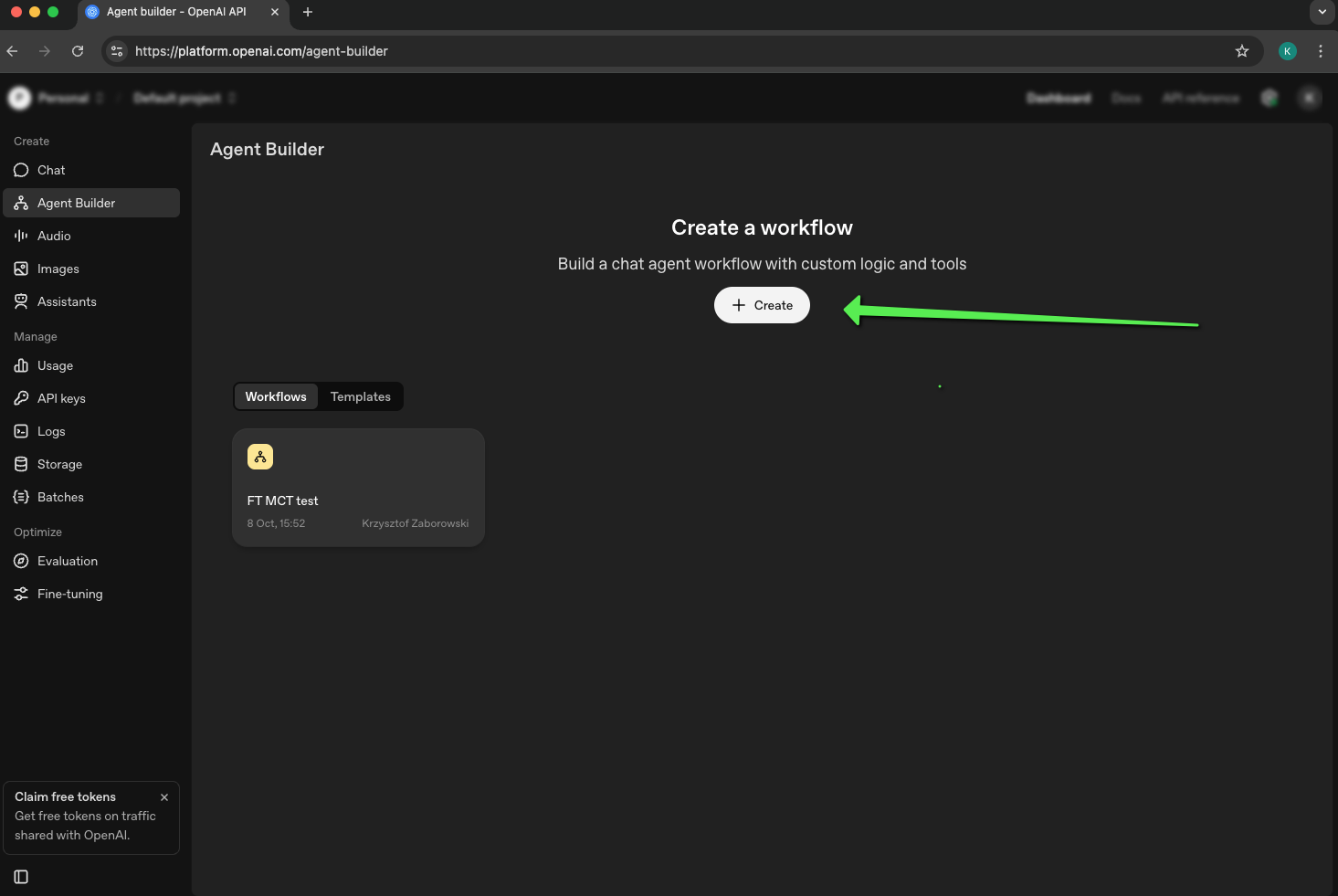
2. Add New Agent
- Within your workflow, select "Add Agent"
- Configure your agent with appropriate settings
- Set the agent name and description
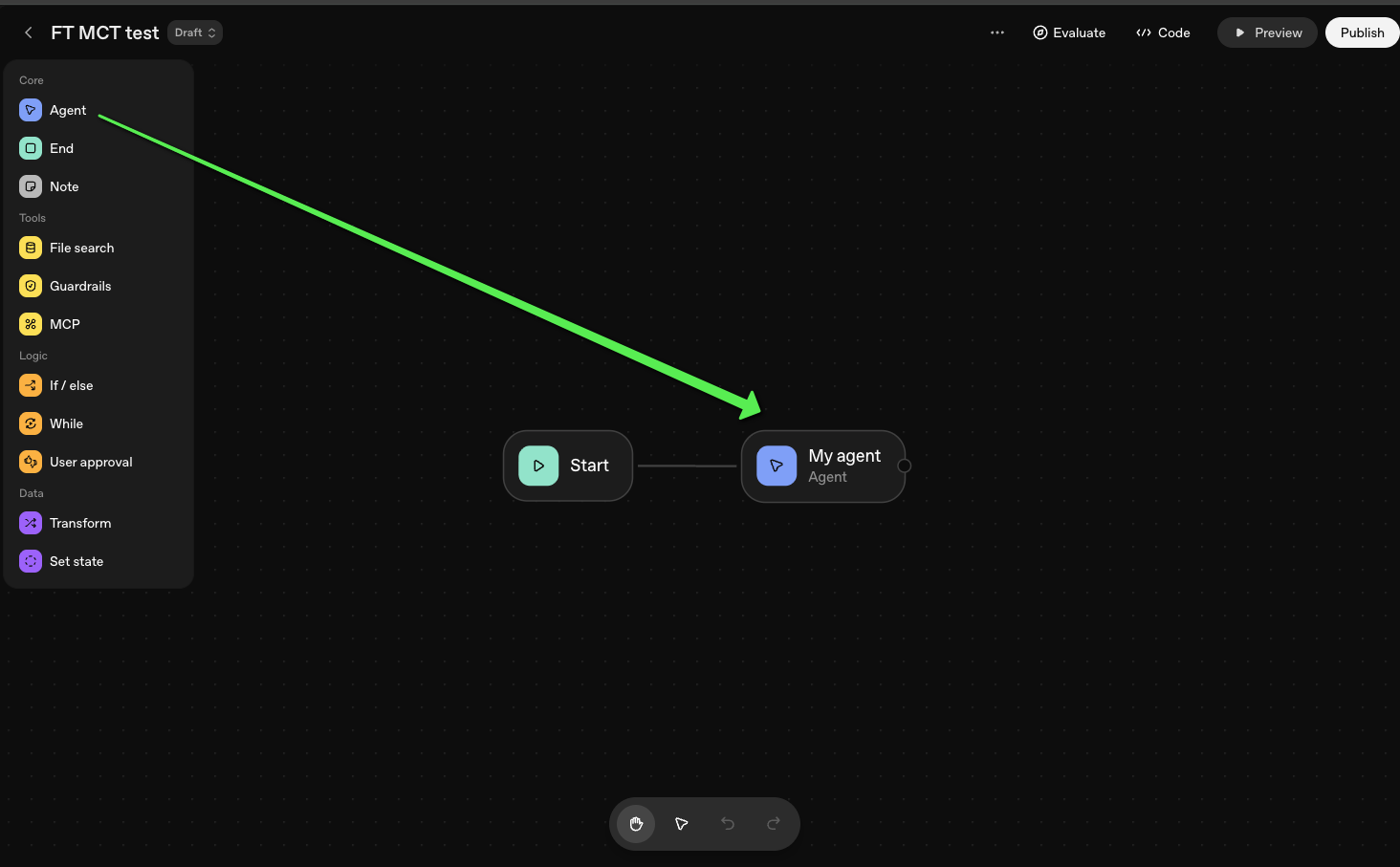
3. Add MCP URL to Agent Tool
- In the agent configuration, navigate to "Tools" or "Integrations"
- Add MCP server URL (provided by your account manager)
- Select the
getGuidestool from available options - Configure authentication using provided credentials
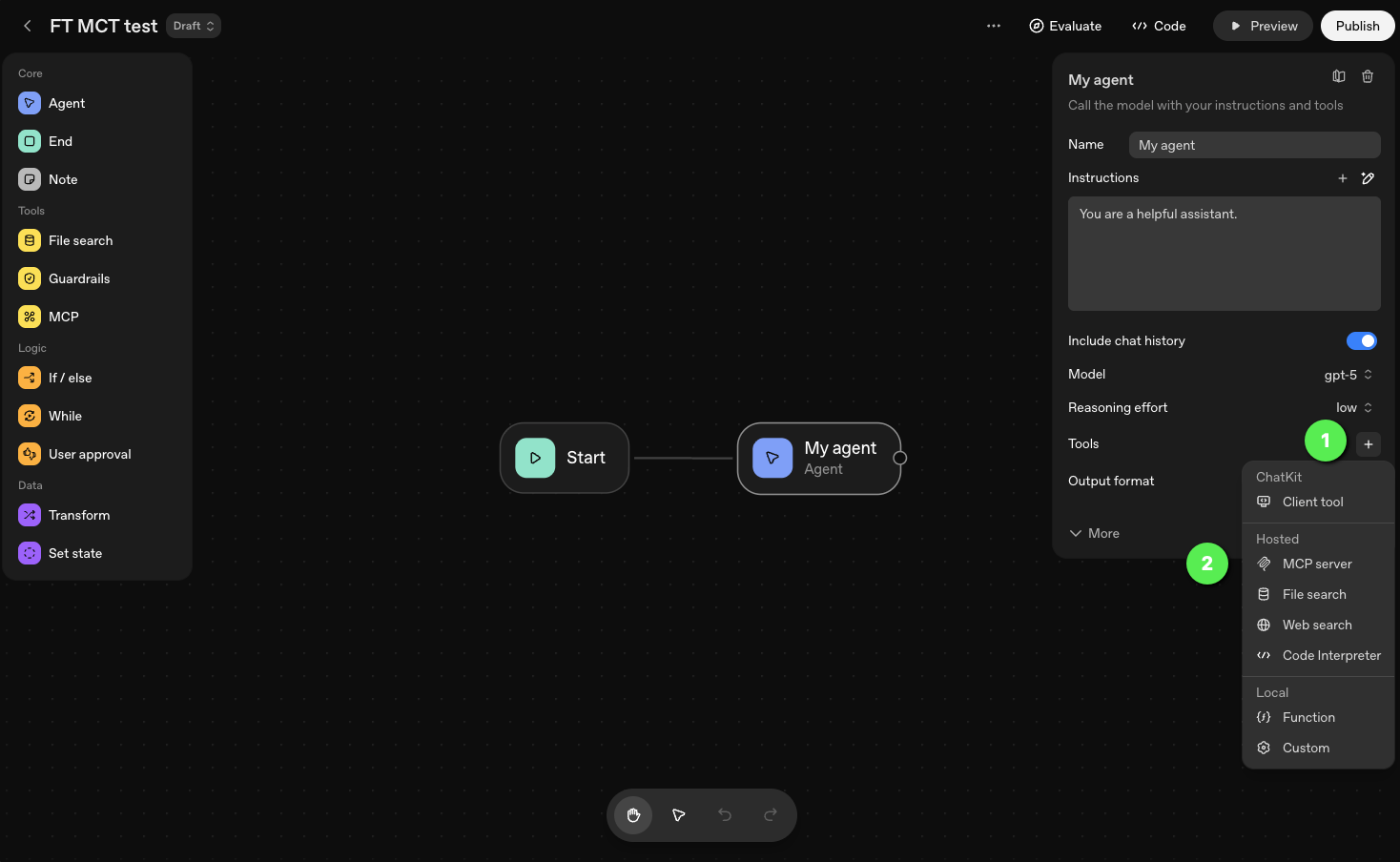
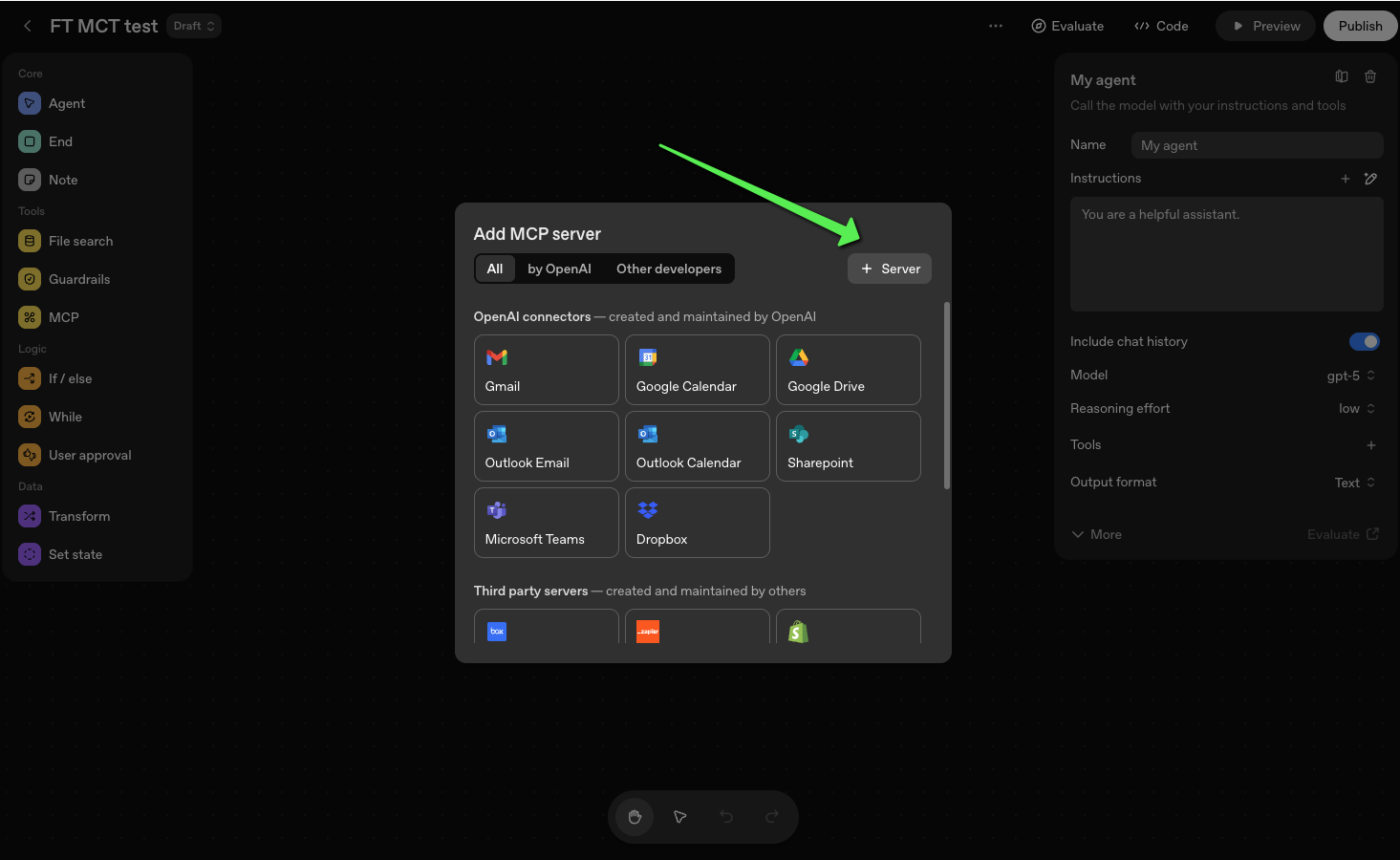
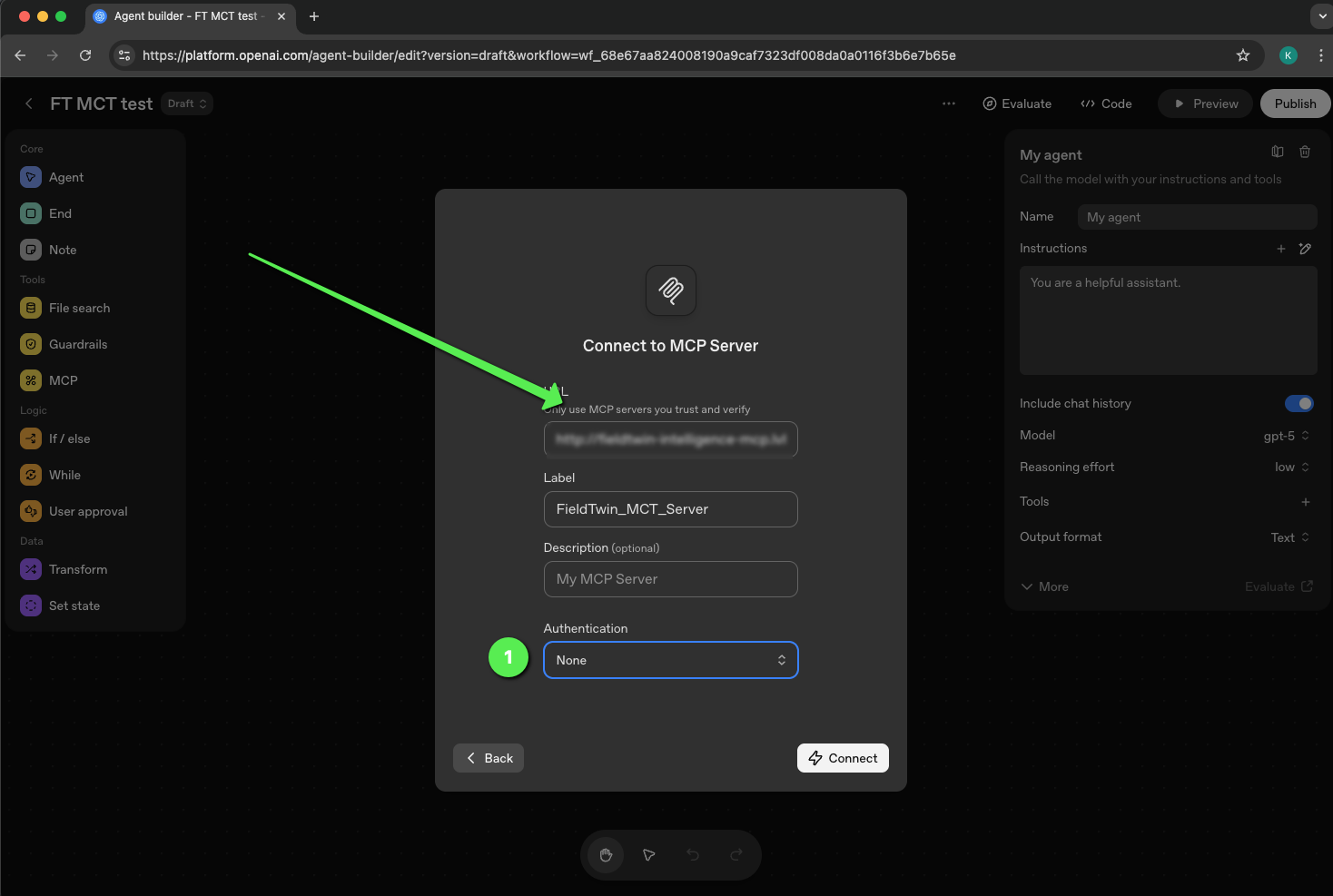
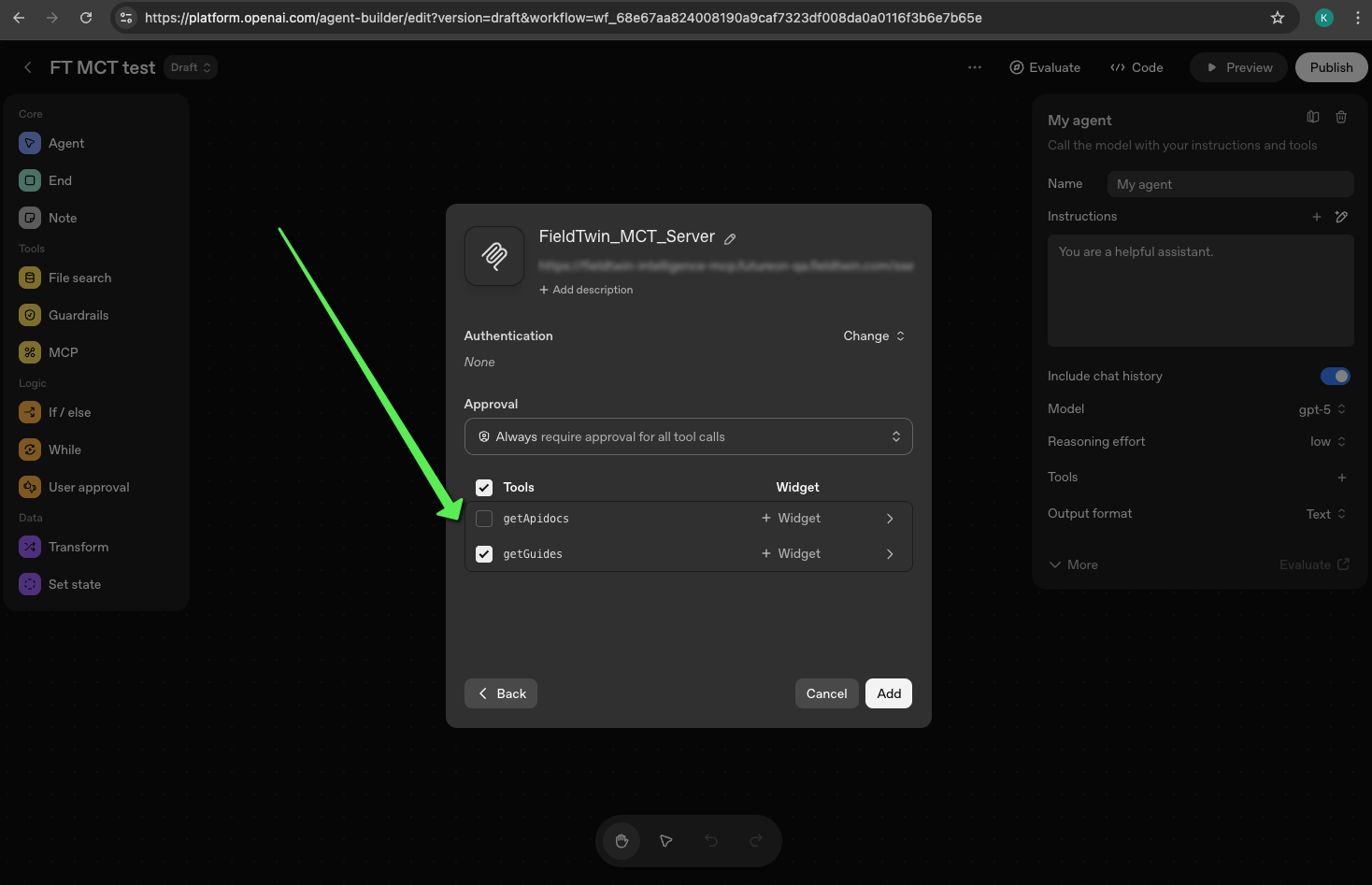
4. Preview Your Integration
- Use the preview functionality to test the integration
- Try sample queries like "How do I create a new project in FieldTwin?"
- Verify that responses include FieldTwin guide content
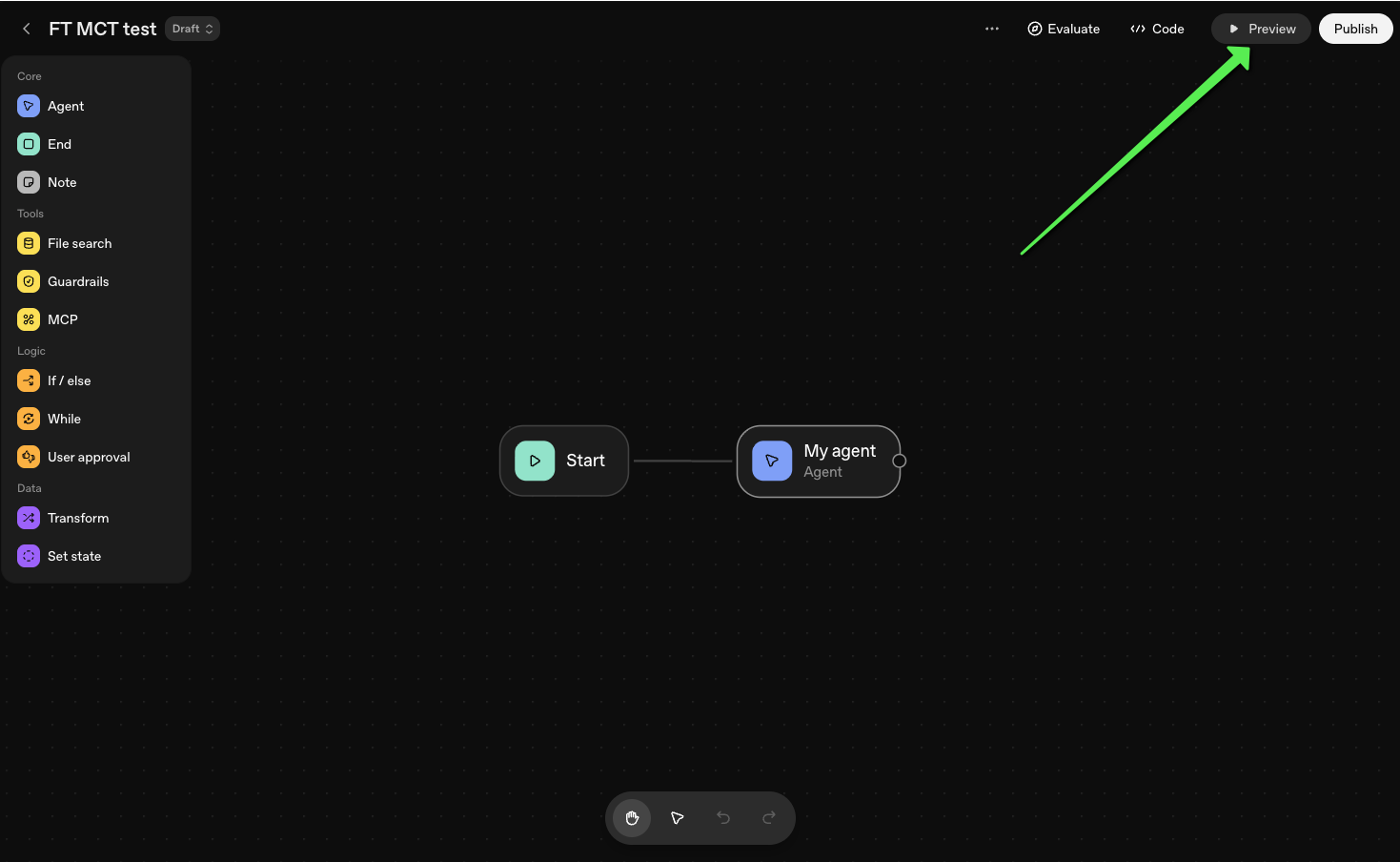
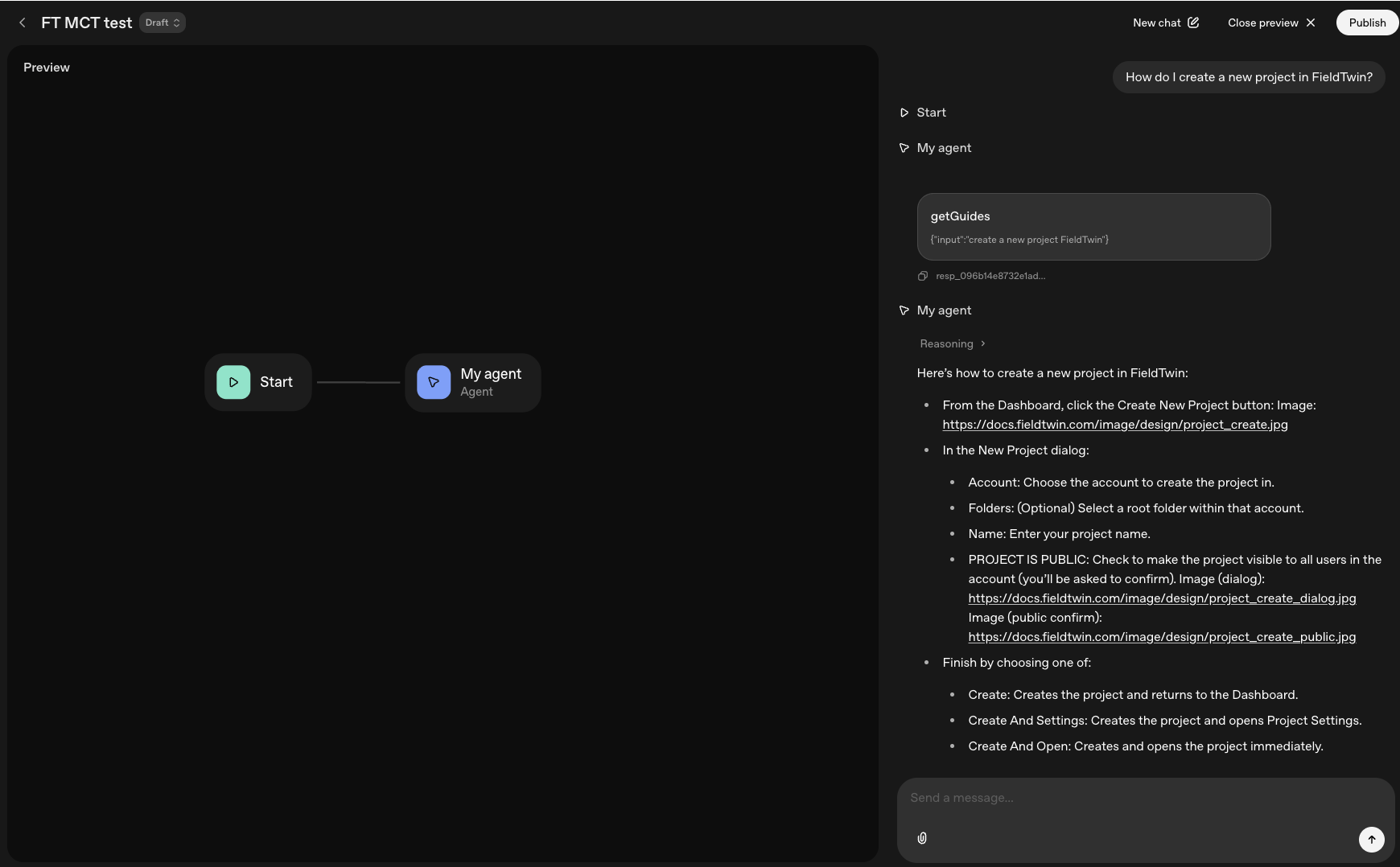
Usage Examples
Once configured, you can ask your OpenAI agent questions like:
- "Show me the FieldTwin API documentation for creating assets"
- "How do I set up connections between assets in FieldTwin?"
- "What are the best practices for project organization in FieldTwin?"
Microsoft Copilot Studio
Integrate FieldTwin Intelligence with Microsoft Copilot Studio to create custom copilots with FieldTwin knowledge.
For detailed Microsoft documentation, refer to: Microsoft Copilot Studio MCP Integration Guide
Setup Instructions
1. Create New Agent
- Open Microsoft Copilot Studio
- Select "Create" and choose "New Agent"
- Configure your agent with name, description, and initial settings
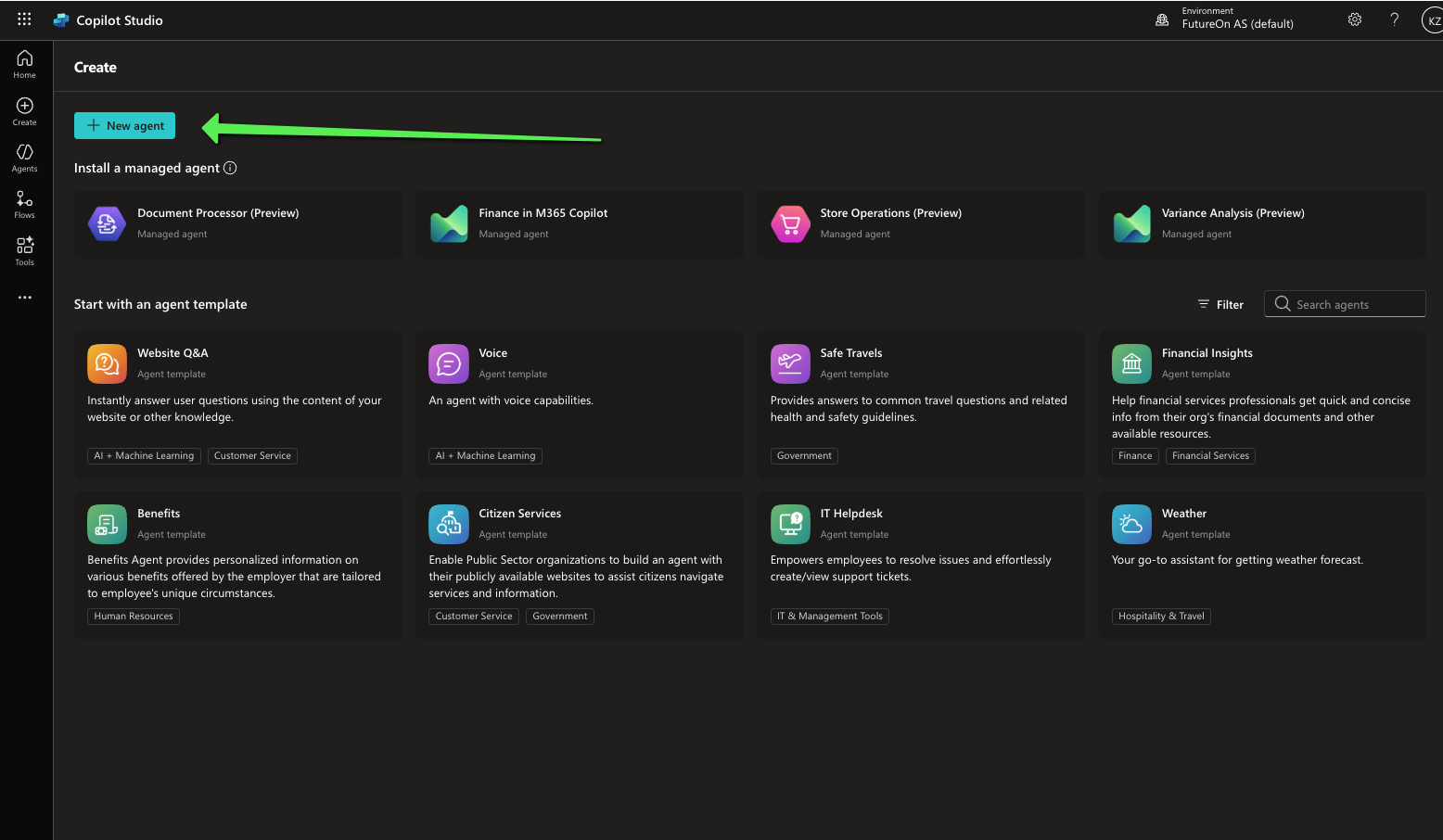
2. Add Power App Connector
- Navigate to "Actions" in your agent configuration
- Select "Add an action"
- Choose "Power Platform connector" option
- Use Swagger to configure the connector
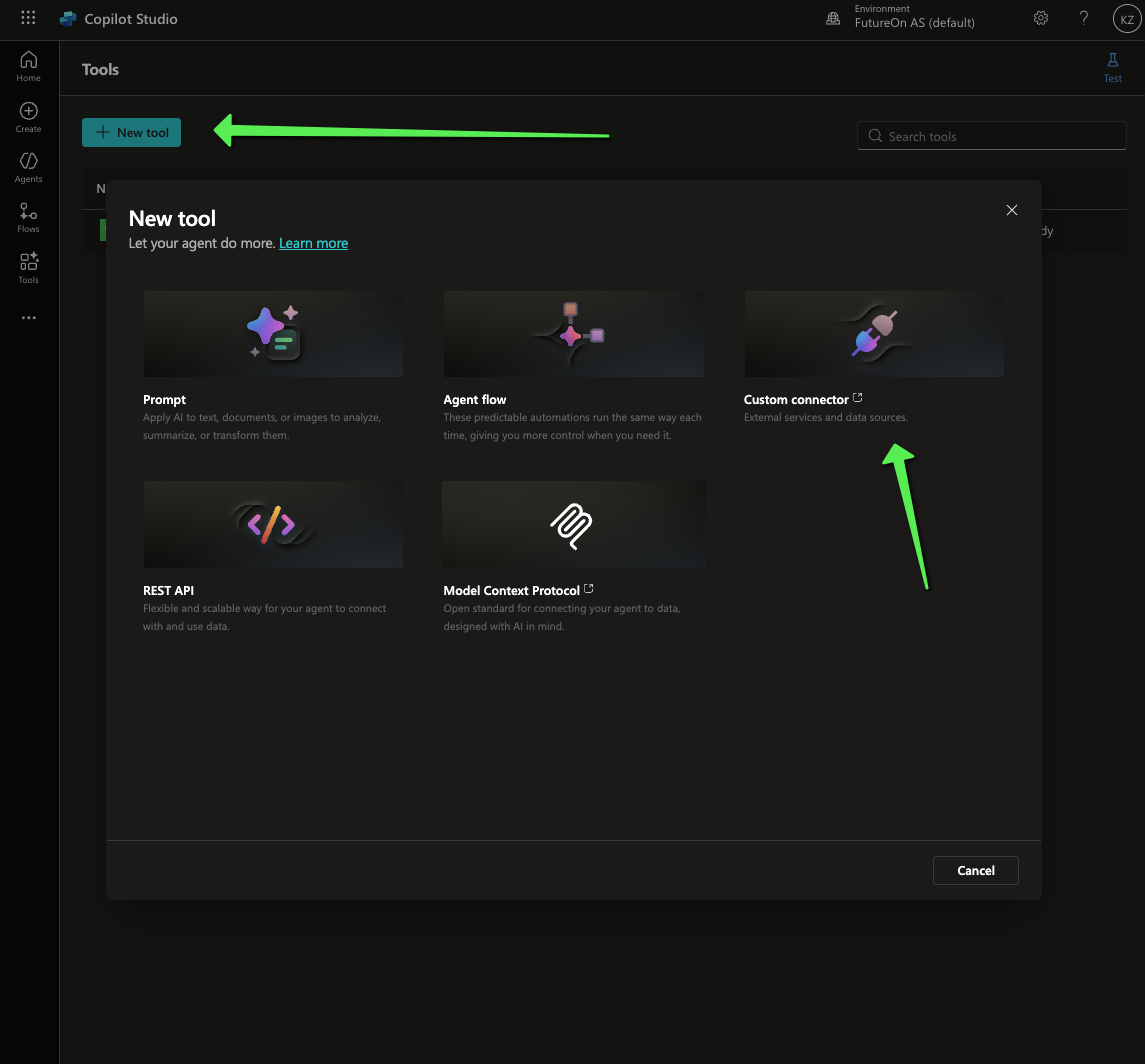
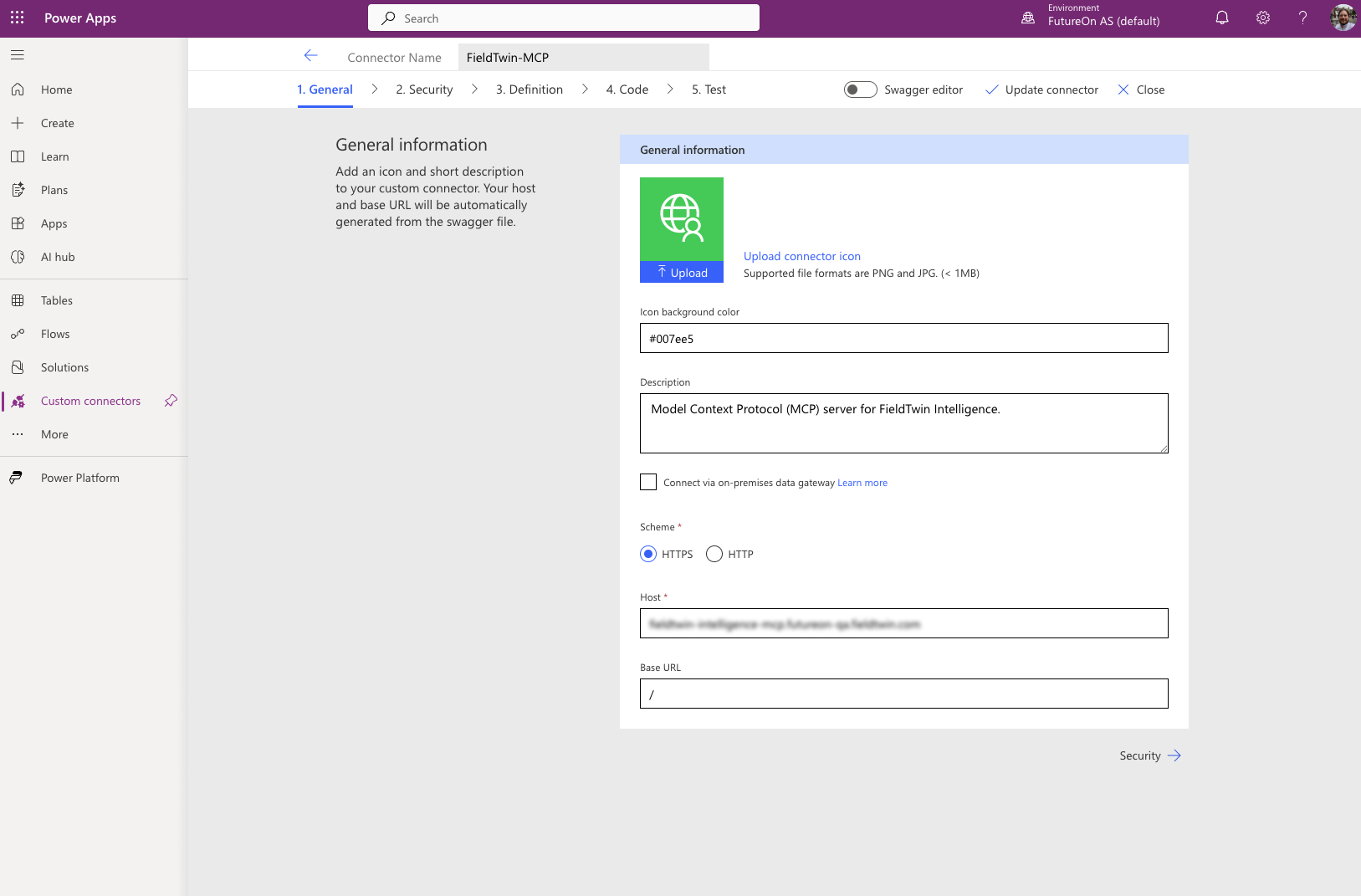
Swagger configuration:
swagger: '2.0'
info:
title: FieldTwin Intelligence MCP Server API
description: Model Context Protocol (MCP) server for FieldTwin Intelligence.
version: 1.0.0
host: URL_OF_THE_MCP_SERVER
basePath: /
schemes:
- https
paths:
/mcp:
post:
summary: FieldTwin MCP Server
x-ms-agentic-protocol: mcp-streamable-1.0
operationId: InvokeMCP
parameters:
- in: query
name: mcp-session-id
type: string
required: false
responses:
'200':
description: Success
securityDefinitions: {}
Select Add Tool and select the FieldTwin Intelligence MCP Server
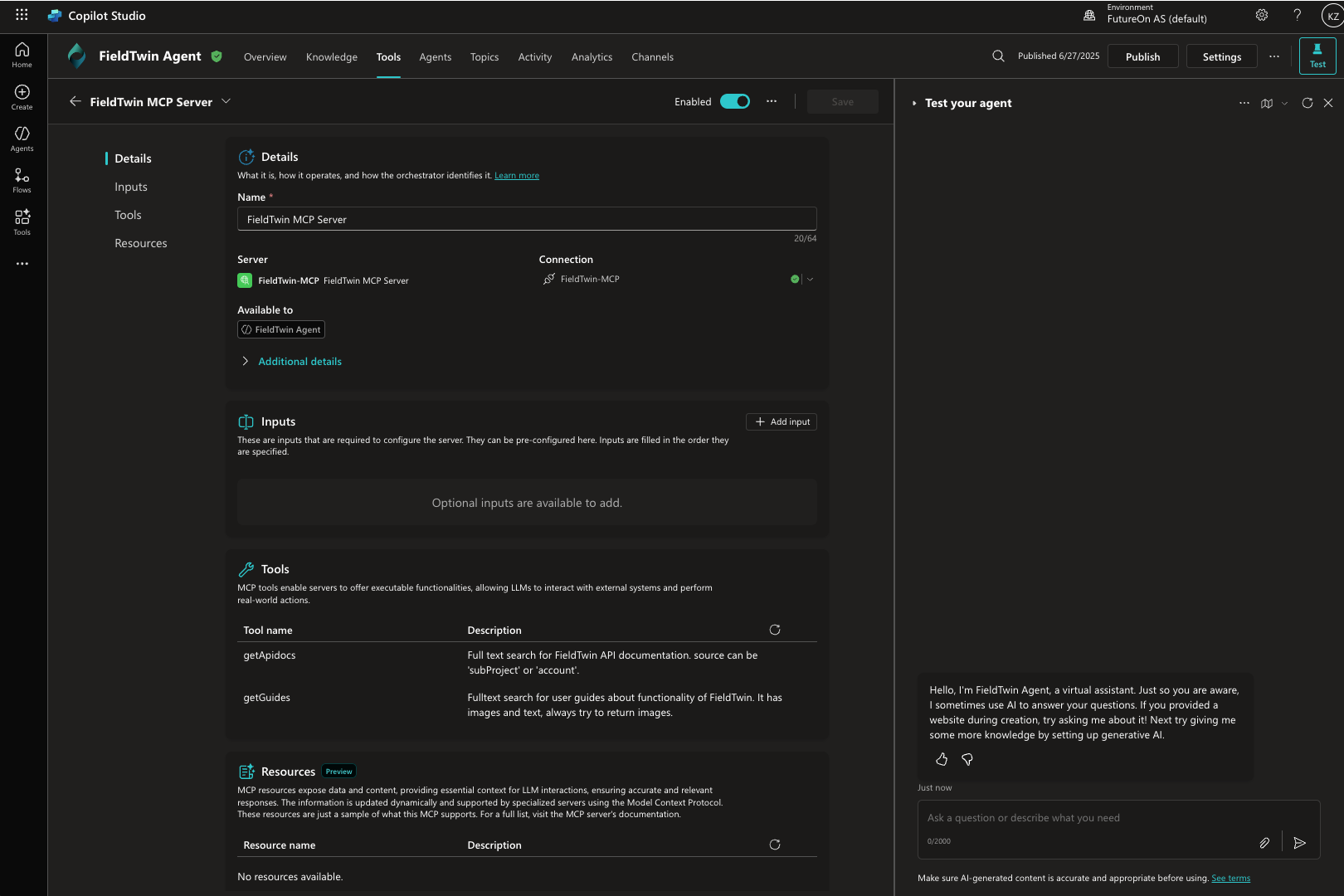
4. Test Your Integration
- Use the "Test" panel to validate the integration
- Try queries related to FieldTwin functionality
- Verify responses are pulling from FieldTwin documentation
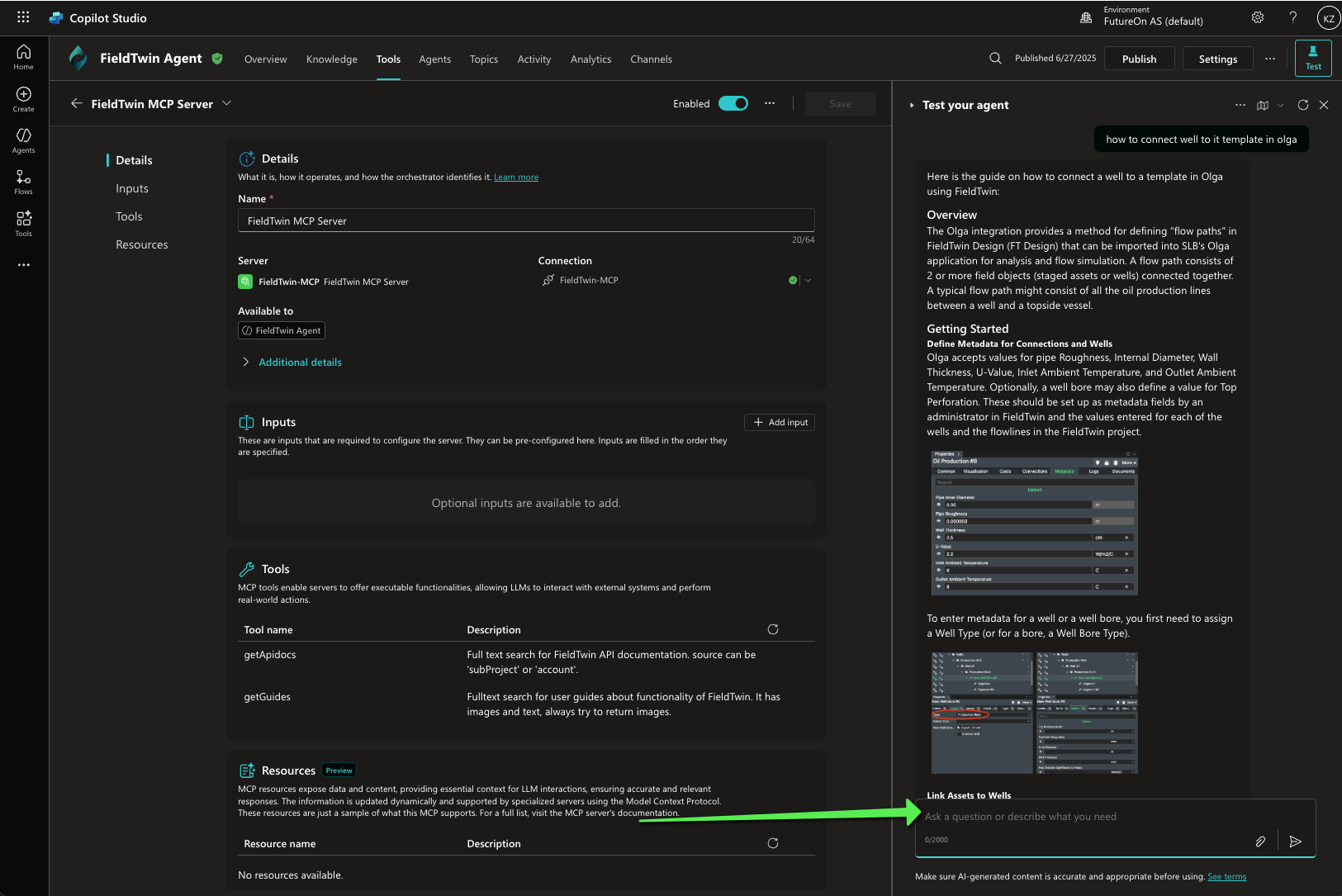
Usage Examples
Your Microsoft Copilot can now answer questions like:
- "What API endpoints are available for project management?"
- "Guide me through creating a subsea layout in FieldTwin"
- "What are the system requirements for FieldTwin?"
GitHub Copilot in VS Code
Enhance your development workflow by integrating FieldTwin Intelligence with GitHub Copilot in Visual Studio Code.
Setup Instructions
1. Configure MCP Settings
- Create or navigate to your
.vscodefolder in your project directory - Add the
mcp.jsonconfiguration file (provided by your account manager) - The configuration file contains server endpoints and authentication details
{
"servers": {
"FieldTwin-Intelligence": {
"type": "sse",
"url": "URL_OF_THE_MCP_SERVER"
}
}
}
2. Start MCP Server
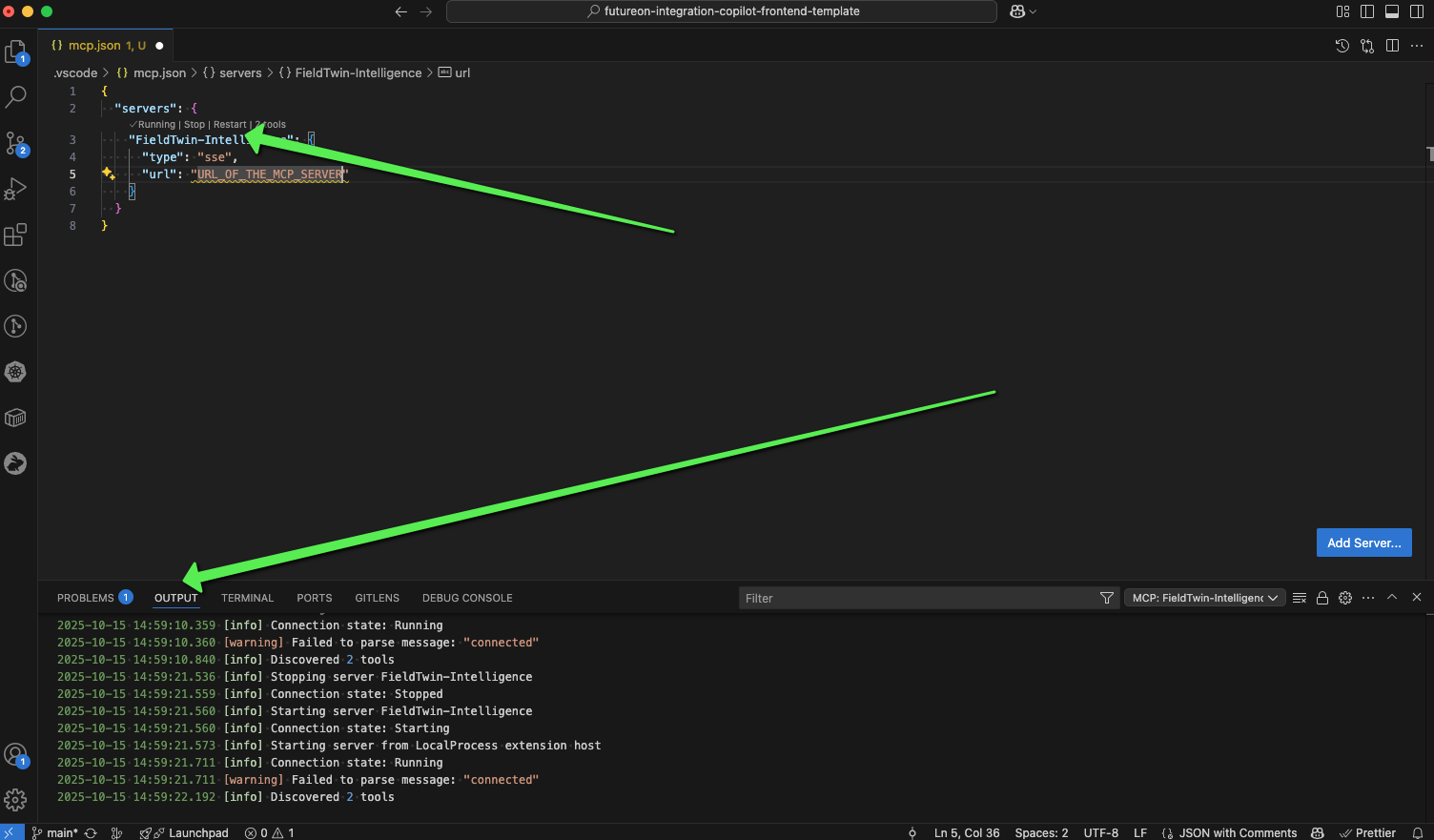
3. Test in Agent Mode
- Open GitHub Copilot chat in VS Code
- Switch to agent mode if available
- Test queries related to FieldTwin development
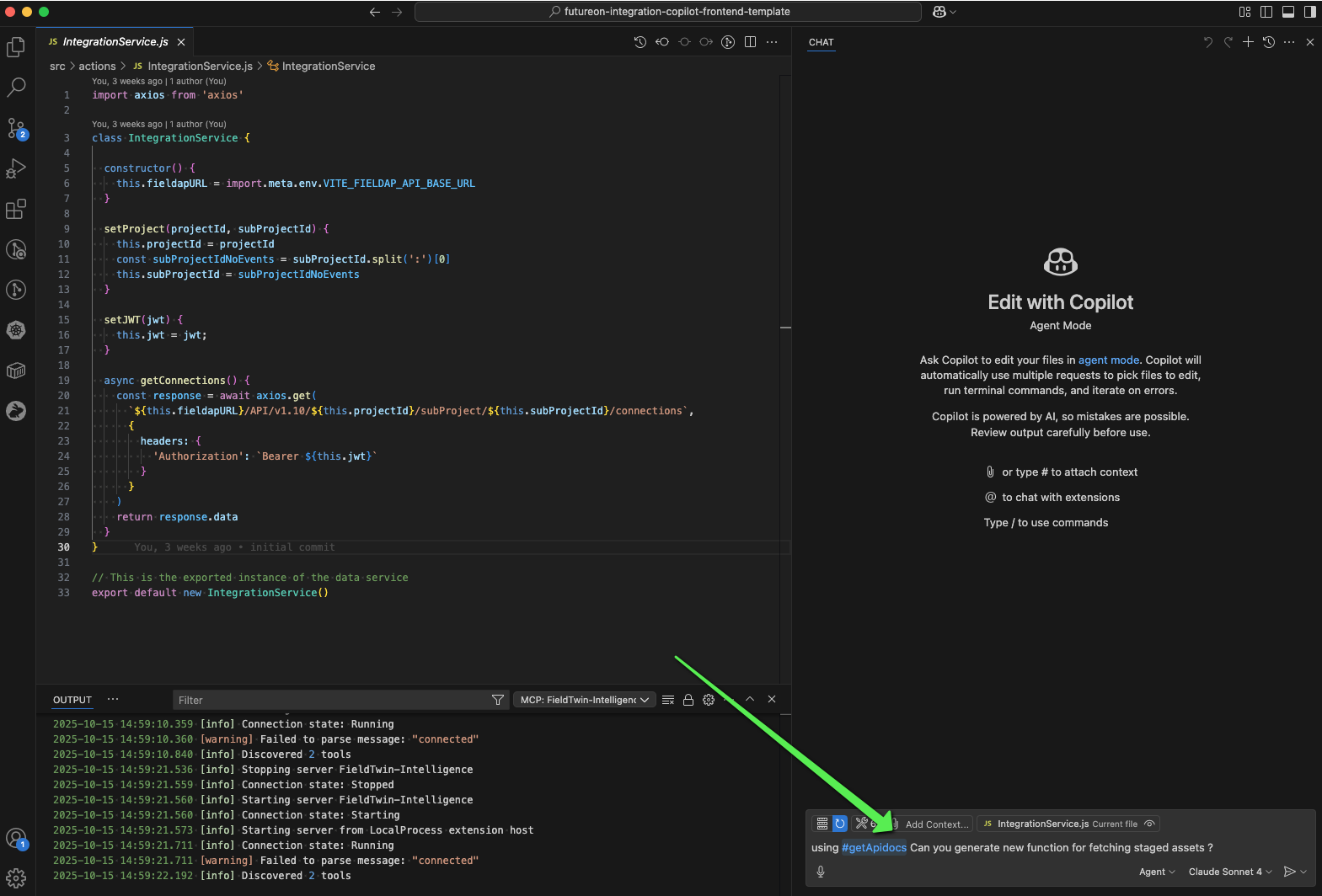
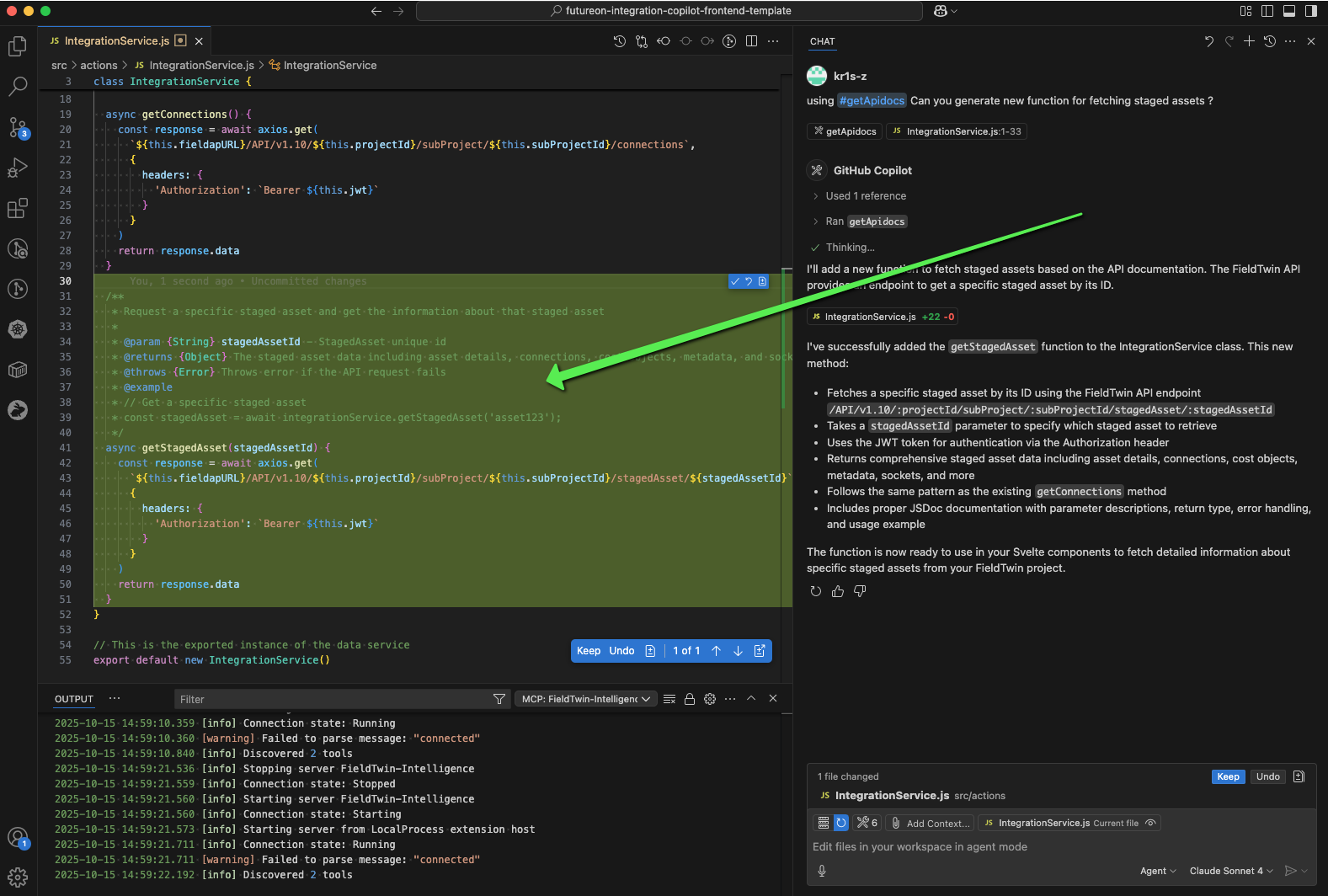
Usage Examples
With the integration active, you can:
- Ask Copilot about FieldTwin API usage while coding
- Access documentation without leaving your development environment
Cursor IDE
Integrate FieldTwin Intelligence with Cursor IDE for enhanced AI-assisted development with FieldTwin context.
For detailed setup instructions, refer to the official Cursor documentation: Cursor MCP Integration Guide
Setup Instructions
1. Configure MCP in Cursor
Follow the official Cursor MCP documentation for initial setup, or use mcp.json file from VS Code setup instructions
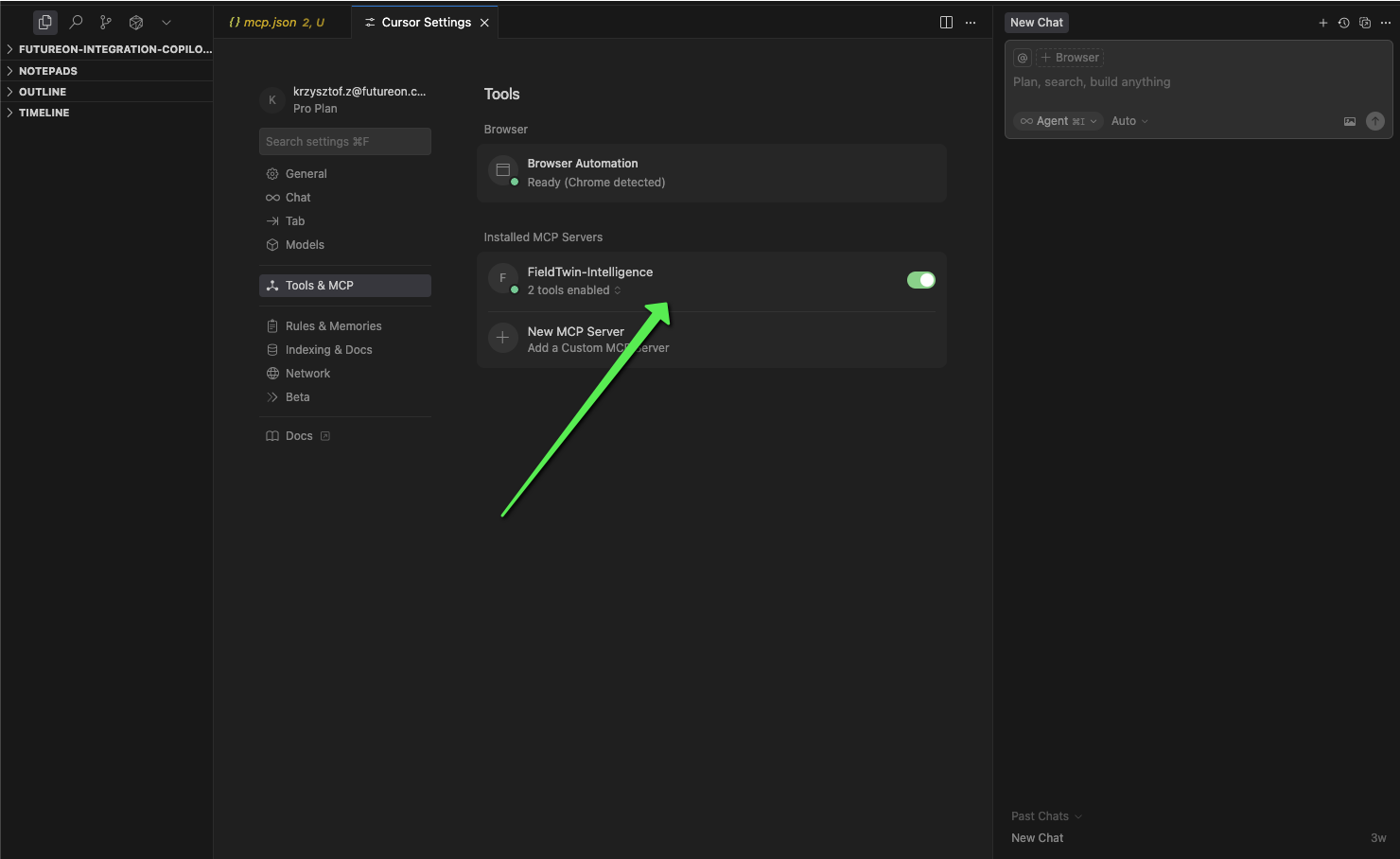
Best Practices
Query Optimization
- Be Specific: Use precise terminology when asking about FieldTwin features
- Context Matters: Provide context about your use case for more relevant responses
- Tool Selection: Use
getApiDocsfor technical/development queries andgetGuidesfor user-focused questions
Security Considerations
- Access Control: Ensure only authorized team members have access to MCP configurations
- Network Security: Use secure connections and follow your organization's security policies
Troubleshooting
Common Issues
Connection Problems
- Verify MCP server URL and credentials
- Check network connectivity and firewall settings
- Ensure MCP server is running and accessible, you might need to restart the server connection
Response Quality Issues
- Refine query specificity and context
- Try alternative phrasing for better results
- Check if the information exists in FieldTwin documentation
Getting Support
If you encounter issues with MCP integration:
- Check Documentation: Review platform-specific MCP documentation
- Contact Support: Reach out to your FieldTwin account manager
- Technical Support: Submit support tickets for technical issues
Conclusion
FieldTwin Intelligence MCP integration brings powerful FieldTwin knowledge directly into your preferred AI development environments. By leveraging the getApiDocs and getGuides tools across platforms like OpenAI AgentKit, Microsoft Copilot Studio, GitHub Copilot in VS Code, and Cursor, you can enhance your development workflows with comprehensive FieldTwin context and documentation.
The integration enables seamless access to FieldTwin's extensive knowledge base, improving development efficiency and reducing the need to switch between different tools and documentation sources.
For MCP server access and credentials, please contact your FutureOn Customer Success representative.